Hemp Oil vs. CBD Oil: The Same or Different?
By David Nadel | March 25, 2020
CBD is a quickly growing and ever-diversifying industry, which means that consumers have more options than ever before if they wish to start a daily hemp regimen. However, the terminology is all relatively new, and this can make things confusing for beginners. At CBD American Shaman, we strive to educate our customers on CBD as much as possible so that they can buy the right products for their needs and enjoy a successful routine with all that the hemp plant has to offer.
Hemp Oil vs. CBD Oil: Why There Isn’t a Clear-Cut Answer
Hemp oil is not the same as CBD oil, but there is often confusion around the two terms. First, let’s break down the definitions of each term. Hemp oil technically refers to an oil derived from the hemp seeds, and while it’s extremely rich in a variety of nutrients, it has practically zero CBD content because the CBD is found in other parts of the plant. CBD oil is derived from the flowers, stalks, and leaves of the hemp plant, where a high volume of CBD naturally occurs.
Sounds pretty simple, right? Well, the issue is that these terms tend to be used interchangeably by CBD companies. Many people would assume that as far as the CBD market is concerned, CBD oil refers to CBD isolate, while hemp oil refers to a hemp extract that contains CBD in addition to a variety of other naturally-occurring plant compounds such as additional cannabinoids, terpenes, and flavonoids.
The thing is that the term “CBD” has become somewhat of a blanket term for any product that contains a hemp extract with CBD in it. However, CBD is simply one compound in hemp, and it happens to be the most prominent one. Many consumers consider the term CBD to mean marijuana minus the THC, which is the psychoactive compound that makes marijuana an illegal drug.
But, when people search for CBD oil, they’re not necessarily looking for just pure CBD. Many are looking for a variety of hemp compounds. This is why it’s the responsibility of industry leaders such as us to educate consumers on the terminology that they’ll encounter as they research CBD.
It’s also important to know that due to certain limitations within the industry, companies feel that they cannot use the term “CBD oil.” The FDA has yet to start regulating CBD, although they have approved a CBD-based drug for epilepsy. This makes things tricky for CBD brands, as the use of certain terms can cause them to fail to comply with the FDA and state laws.
Hemp Oil
Hemp oil technically refers to an oil containing hemp extract, which is derived from the flowers, leaves, and stalks of the plant material. The hemp extract is naturally rich in a variety of compounds native to hemp, including CBD and other cannabinoids, as well as terpenes and flavonoids.
It’s also important to understand the difference between hemp and marijuana at this stage. Both of these plants belong to the cannabis family, but the major difference between the two is their compositions of chemical compounds. Primarily, marijuana contains a relatively high level of THC, the psychoactive compound that gets people high. Hemp, on the other hand, has 0.3 percent or less THC that naturally occurs, which is why it’s legal and non-psychoactive.
Hemp Seed Oil
Hemp Seed oil is associated with food, as it’s commonly used as a culinary ingredient. It’s also found in skincare and haircare products due to its moisturizing properties. Hemp Seed oil comes from the seeds of the hemp plant, which contain a high level of omega fatty acids, as well as a decent amount of protein. But, the seeds of the hemp plant do not contain cannabinoids or any of the other compounds that are commonly sought after in CBD products.
What is CBD?
To understand the CBD oil vs. hemp oil conundrum better, it’s important to fully understand what CBD is. CBD is a cannabinoid found in the hemp plant. Hemp naturally contains a variety of cannabinoids. Interestingly, CBD is found in both the hemp and marijuana plants, but CBD and THC are inversely correlated, meaning the more THC (psychoactive), the less CBD (non psychoactive) and vice versa. So, CBD oil products are made from plants with high levels of CBD and only trace amounts of THC.
CBD won’t get you high, which is why anyone can buy it throughout the United States. Lots of research has been done to study the unique properties of this cannabinoid, and as a result, many people take it daily for various health benefits.
What is a CBD Isolate?
Now, let’s discuss CBD isolate. It’s important to note that a lot of people assume that CBD oil is CBD isolate, but this is not always the case. CBD isolate is a crystalline powder that contains only pure CBD, without the presence of any other natural hemp compounds. It’s simply CBD combined with a carrier oil. Being only pure CBD, it’s free of THC, which makes it legal even in states where trace amounts of THC are not legal.
What is Full Spectrum Hemp Oil?
Full spectrum hemp oil is an extract derived from the whole plant, meaning that it naturally contains the full spectrum of cannabinoids, terpenes, and flavonoids that exist in the plant material. Essentially, it’s the full chemical composition of hemp as it occurs in nature. It’s worth noting that this is what most people are seeking out when they look for CBD oil, since most folks want a completely natural product.
What is Broad Spectrum Hemp Oil?
Broad spectrum hemp oil is a THC-free option that by industry standards must contain at least two cannabinoids and one terpene. This is in between full spectrum and CBD isolate, since it contains more than just CBD, but not the full spectrum of compounds.
So, is Hemp Oil the Same as CBD Oil?
In conclusion, hemp oil is not the same thing as CBD oil. However, these terms can overlap quite a bit, and it comes down to understanding the various terms within the industry to know what you’re getting when you buy a hemp-derived oil product. Rather than fixating on the product names, read into the product descriptions to get a better sense of which compounds are present in any particular hemp oil or CBD oil product.
What are the Benefits of Hemp Oil?
Hemp oil may provide relief from mild discomfort, promote relaxation, help manage everyday stress, provide positive mental support, help improve mood, and provide relief from occasional sleeplessness. It also may help maintain cardiovascular function, help promote joint flexibility, and help support the immune system.
Humans have cannabinoid receptors sprinkled throughout the brain and body which react to endocannabinoids that our bodies create themselves. The endocannabinoid system regulates many processes such as restfulness, relaxation, hunger, mood, joint function, cardiovascular function, and the immune system. Cannabinoids from the hemp plant can help to keep these processes in balance by supplementing the body’s own endocannabinoids.
Purchase From a Trustworthy Source
As you can see, the CBD oil vs. hemp oil subject is a bit more complex than you might have assumed. However, the good news is that for the most part, companies do what they can to clearly differentiate between the two for the sake of transparency to consumers. As long as you’re purchasing from a trustworthy source, you can easily apply this information to your next hemp purchase.
The content on this site is not intended to be a substitute for professional medical advice, diagnosis or treatment. While research has shown that CBD has the potential to help provide beneficial outcomes for several complaints, it is advisable to seek the advice of a physician or other qualified health care provider when you have questions regarding any medical condition and when starting, augmenting or discontinuing any existing health routine.
Recommended Reading
Recent Blog Posts
Special Offers For Subscribers
Save 20% When You Subscribe
Subscribe to our newsletter to stay up to date with discounts, giveaways, wellness news and more!
This site is protected by reCAPTCHA and the Google Privacy Policy and Terms of Service apply.

Quality

Safety

Mission

Charity

Innovation
 Store
Locator
Store
Locator